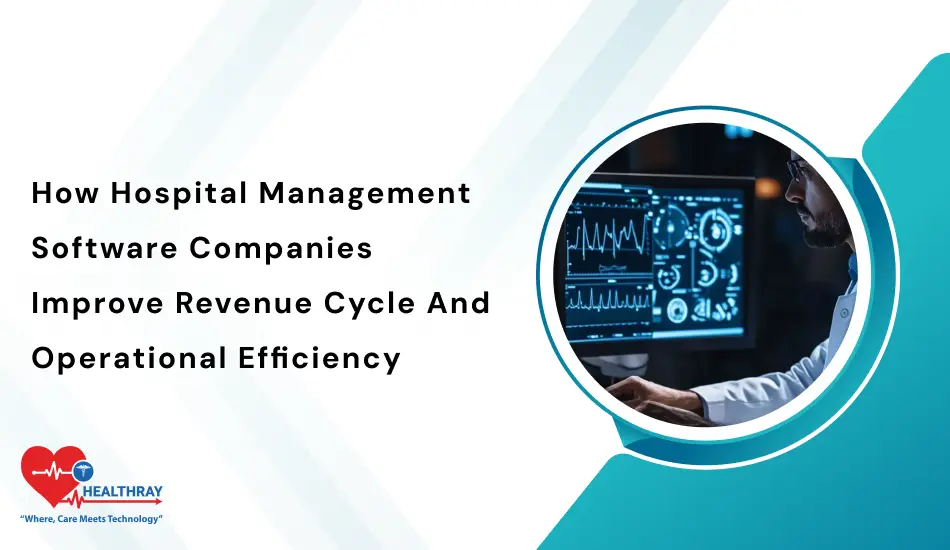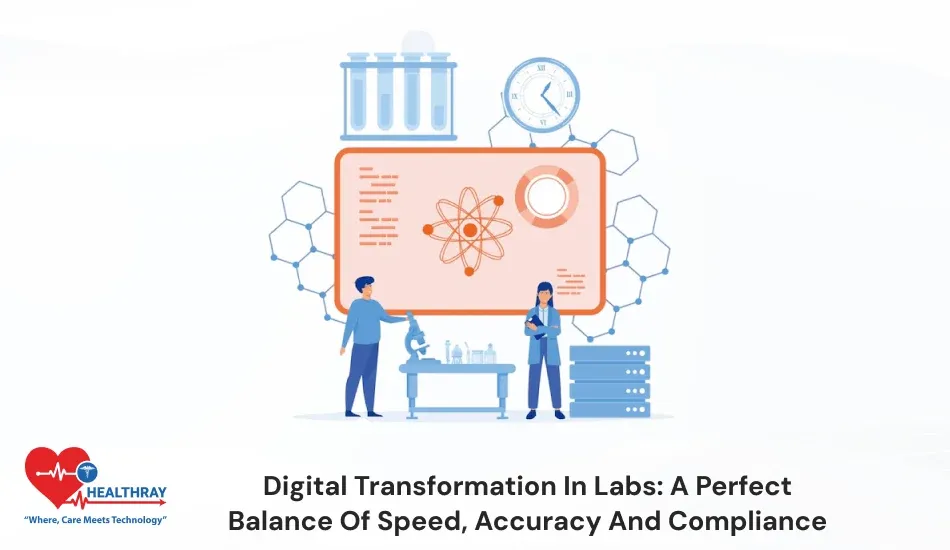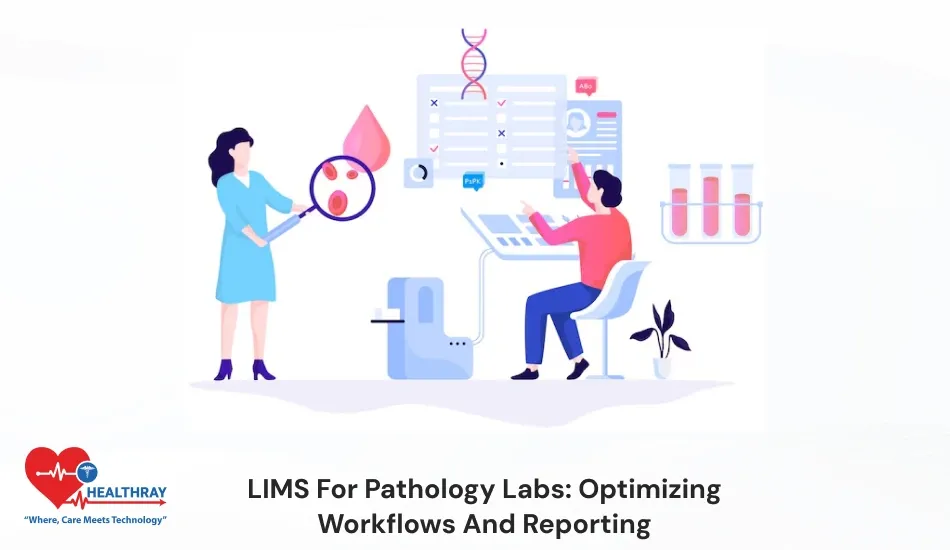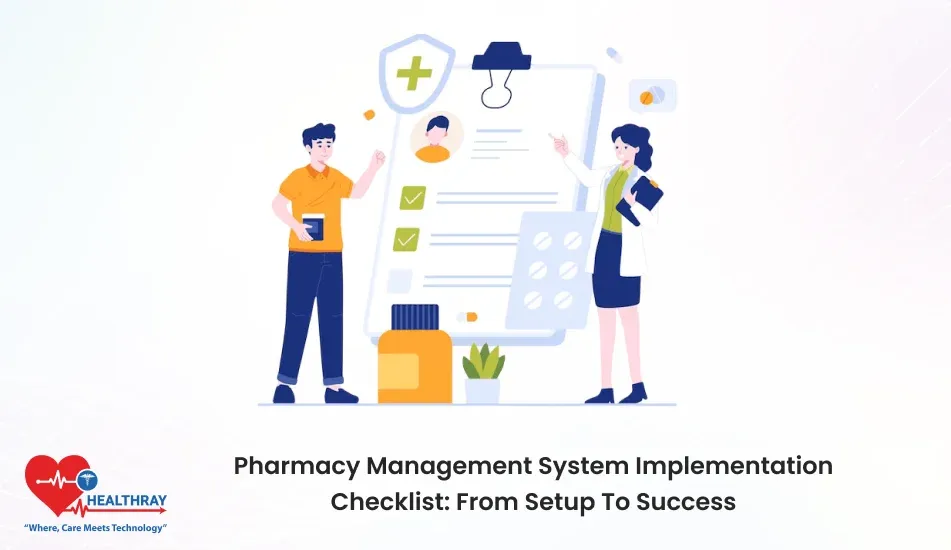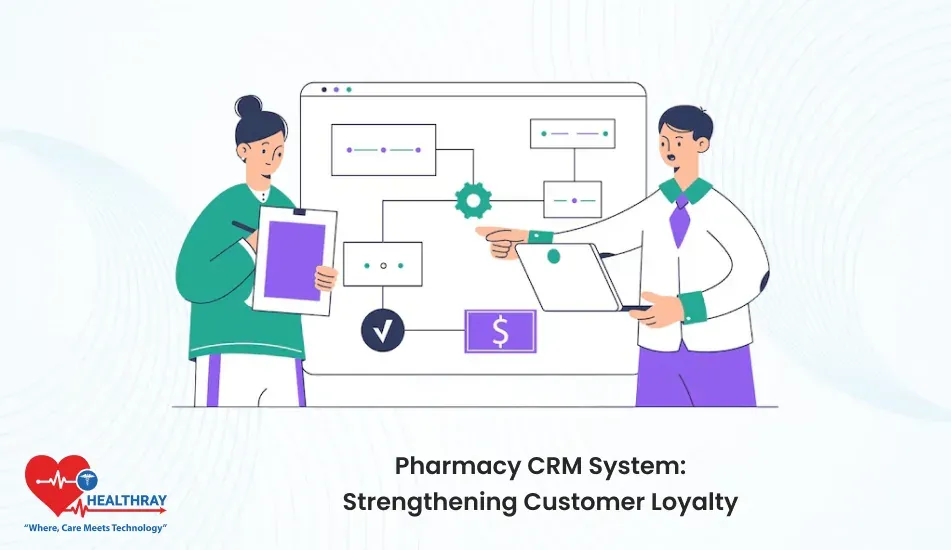Summary
Hospitals must implement hospital management software when patient volume rises and compliance needs become more complicated. With hospital management software, hospitals can provide better outcomes, optimize revenue cycles, and stay abreast in the competitive, rapidly evolving healthcare world.
HMS is a digital solution that automates and integrates many features of hospitals, such as patient registration, appointment scheduling, billing, Electronic Medical Records (EMR) management, inventory control, and compliance tracking. In this blog, I will discuss how hospital management software companies improve revenue cycle and operational efficiency. Also, you will eventually comprehend how these state-of-the-art solutions guarantee smooth communication between various hospital departments. Let’s begin!!!
Introduction
A hospital’s success depends not only on patient care but also on its ability to strategically manage operations, finance and administrative departments. Further, hospital management software is a powerful digital solution that helps hospitals to cope with traditional challenges like patient care, data management, and process coordination. Modern, cutting-edge hospital management software is beyond simple digitalization. These systems enhance patients’ experiences and provide real-time access and help administrators maintain compliance throughout the journey. I am working as a system IT manager at Grace medical home Orlando, Florida.
I faced many challenges in my normal medical operation workflows. Due to our inability to keep track of every patient’s records, my healthcare team became confused and gave doctors inaccurate information. Then finally we adopted hospital management software; now all our medical workflows are digital and organized. Now we can easily manage appointments and billing reports in a single platform. After configuring HMS, now doctors can easily fetch patients’ data in real-time, patients get fast services and errors have almost disappeared. With features like centralized data storage, automated billing, secure access controls, and advanced analytics, hms streamlines the workflows and breaks operational silos.
Through automation and integration, hospitals are able to provide fast responses to patients’ needs and utilize resources efficiently, consequently enhancing operation productivity and reducing cost.
How HMS Drives Revenue Cycle Improvement
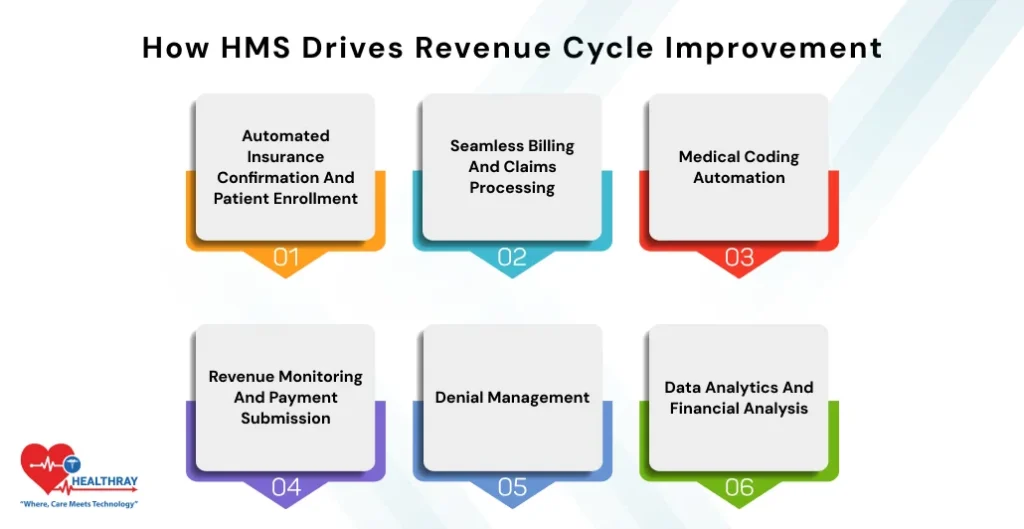
Let’s check out:
Automated insurance confirmation and patient enrollment
Through HMS, hospitals can easily automate their patient registration process and instantly verify their insurance eligibility. Further, with the digital healthcare system, hospitals can reduce the manual workload and waiting time of patients.
Additionally, the system can detect misleading and incomplete data to avoid claim rejection and processing delays. Overall, with the clinical management system, staff don’t need to take the inconvenience of double-examining. Also, everything gets digitally verified and stored, ensuring smooth onboarding and faster reimbursements.
Seamless billing and claims processing
HMS permits hospitals to automatically calculate charges based on services. Furthermore, it eliminates the manual invoicing errors. Medical software electronically submits the claims to insurers and quickly and efficiently processes the approvals and reimbursements. Now, staff don’t focus on the stressful and time-consuming tasks of billing and follow-ups. Furthermore, the best Hospital software solutions track and manage data in real time, ensuring smooth cash flow and a faster revenue cycle.
Step towards digital era with our healthcare solution
Revamp your hospital facilities and embrace change for better healthcare management. Ease in managing and organizing large medical datasets leads to effective analysis. Seize the opportunity now!
Medical Coding Automation
Hospitals’ built-in coding tools enable hospitals to accurately assign medical codes as per the services. Further, it significantly reduces coding mistakes and claim denials with the support of medical coding services. Further, it significantly reduces coding mistakes and claim denials. Further, the system verifies claims as per compliance standards so that insurers get fast and hassle-free approvals. Now, with digital medical practices, don’t waste time on manual coding errors. Overall, with the hospital’s online solution, the hospital can digitally validate and track all the workflows, ensuring smooth insurance approval and timely financial reimbursements.
Revenue Monitoring and Payment Submission
Online revenue management software allows hospitals to reconcile billed and received payments in real time. Further, it helps you identify noteworthy balances or revenue leakage. Plus, the system can automatically post and track payments and efficiently manage staff collections and follow-ups. Overall, OPD management software helps you easily monitor cash flow and improves financial transparency in the hospital operations. Thus, ensuring a predictable and scheduled revenue cycle and fault-free services.
Denial Management
Interoperable hospital management solutions enable hospitals to recognize denied claims and make improvements and resubmit them immediately. Further, denial management software analyzes recurring denial trends; this way, hospitals can prevent future claim rejections.
Hereby, staff don’t dedicate time to manual tracking and error corrections, as the hms system can digitally monitor and manage all the workflows. Thus, smart hospital software for clinics ensures faster reimbursements and optimized revenue collection.
Data Analytics and Financial Analysis
Cloud billing and revenue software permit hospitals to generate comprehensive revenue reports so that hospitals can easily identify trends and bottlenecks. Furthermore, integrated hospital software provides real-time analytics to easily optimize cash flows and improve revenue collections. Now, staff don’t devote time to hectic and exhausting manual calculations and reporting. Overall, clinical software digitally tracks and visualizes the operations, ensuring data-driven financial decisions and a stronger revenue cycle.
Real-World Results and Use Cases
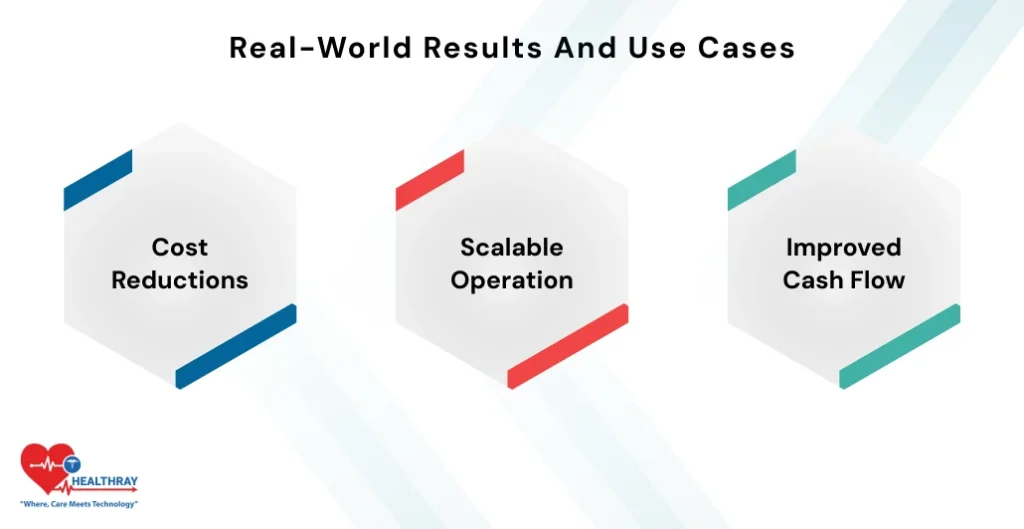
Let’s check out:
Cost Reductions
Clinical software enables hospitals to automate manual tasks, which significantly reduces administrative and clerical workloads. Furthermore, Hospital employees were primarily busy with manual billing, paperwork, and entering each record into the system by hand under the old system. Here I will discuss how cleveland clinic of the USA reduces their cost with hospital management software.
Cleveland clinic in the USA implemented digital patient intake and automation; their staff work now get reduced and operation costs increased by $25 million in just 6 months.
Additionally, medical management software can reduce staff workloads on repetitive paperwork and manual entries. Furthermore, hospitals can efficiently manage operational costs and optimize the resources and also help hospitals to achieve long-term savings.
Scalable Operation
Hospital management systems allow medical facilities to easily scale the operations, whether you are opening new departments or expanding telemedicine programs. Let’s talk about the Fortis hospitals in the USA and how they have streamlined their operations with HMS and are able to readily add new features as needed.
Fortis hospitals was struggling with managing the high volume of patient calls and emails. Furthermore, they had trouble responding to customers promptly; sometimes, the high volume of calls required them to hire a second team to handle the situations.
Further, Fortis hospitals adopted a hospital management system and now in one platform, they can handle multiple branches. Also, patient care and billing efficiency become smooth and consistent. Now, staff can digitally track and control the workflow of every branch without any confusion. Additionally, with flexible design, hospitals can confidently plan their growth and expansion.
Improved Cash Flow
Hospital workflow automation software helps organizations streamline their revenue cycle so that payment insurers and patients get the fastest response. Let’s understand the apollo hospital case and how they streamline their cash flow in their system. Apollo hospital implemented an automated billing and claim tracking system and reduced the payment turnaround time by 30%.
Additionally, with AI-based billing software, now hospitals don’t need to wait for the reimbursement process. Furthermore, all medical procedures are now tracked in real time, which improves the system’s financial stability and guarantees consistent cash flow.
Conclusion
Hospital management software companies power the financial and operational engines of modern healthcare organizations. By combining powerful revenue cycle tools, workflow automation, and advanced analytics, they enable hospitals to thrive in a complex, regulated, and competitive environment. Effective HMS adoption not only ensures financial sustainability but also lays the foundation for outstanding patient care and long-term operational excellence.
I hope the above blog provides you practical insights on how hospital management software companies track and manage data in real time to guarantee smooth cash flow and a faster revenue cycle.
Get amazing results by implementing hospital management software into your everyday medical workflows!!!!!
